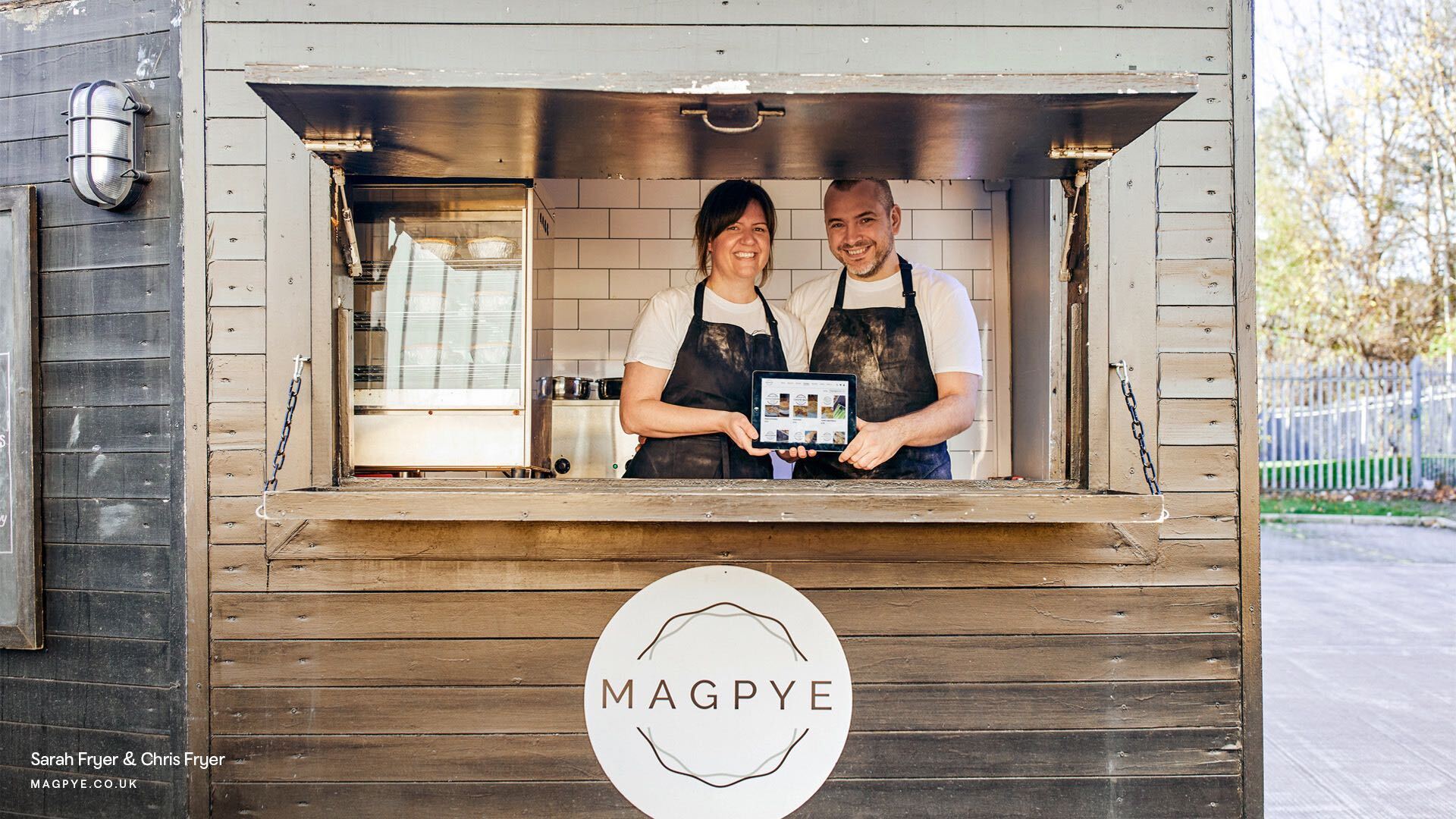
Cost-of-Living Crisis Threatens British Microbusiness Economy
Microbusiness profile
Cost-of-Living Crisis Threatens British Microbusiness Economy

Chris and Sarah Fryer, a husband and wife team from Newcastle in the northeast of England, have been microbusiness owners since 2019, meaning they’re among the millions of entrepreneurs with fewer than 10 employees.
They initially set up their vegan pie business, Magpye, as a physical retailer to sell produce at local events, but have since also launched an ecommerce offering to fulfill orders across the UK and internationally.
The couple have had to adapt their approach in line with the turbulent business landscape of the past few years. And although the COVID-19 pandemic caused a huge amount of upheaval, Chris and Sarah were able to pivot to online sales quickly with the support of GoDaddy. This move kept their business alive.
However, as the second Venture Forward UK survey of over 2,000 microbusiness owners for Great Britain uncovers, entrepreneurs like Chris and Sarah have faced even more serious threats since the cost-of-living crisis emerged in 2022 and their overhead expenses began to soar.
Chris and Sarah said, “The business has grown consistently since we started, but the past 6-12 months have been very challenging. As a bakery, we use a lot of energy, so the rising cost of gas and electricity has dramatically increased our overheads. We are concerned about the energy relief scheme coming to an end in April, and would like to see the government launch targeted help for energy-intensive businesses like ours.
For the majority of microbusinesses, us included, the profits are also the owners’ wages. We are facing a reality of rising costs at home while dealing with falling profits in the business, yet there seems to be little or no support for businesses like ours.”
Rising costs, yet still optimistic.
It’s a similar story for everyday entrepreneurs across the country. In fact, the Venture Forward data reveals that more than one in nine microbusiness owners fear they could go bust this year because of spiralling costs, and almost one in three look to these ventures as their main source of income. While 55% of microbusiness owners are confident that their business will grow in 2023, only 18% are confident in the UK economy as a whole in the same time period.
Venture Forward once again underlines the importance of microbusinesses to their communities and the country. They are responsible for millions in e-commerce sales each year and help create jobs. When they thrive, we all do – and it is crucial they are given adequate support to help negate the cost of doing business.
What can the government do to help?
When asked what support they need, the most common response from microbusiness owners was tax incentives (42%), followed by technical assistance for business development and help with digital strategy (both 36%). Meanwhile, more than a third (35%) surveyed said access to capital, while three in 10 (30%) asked for subsidised/affordable rent.
The unique, multi-year Venture Forward research initiative began in 2018 in the US and expanded to quantify the economic impact of over 2.3 million British microbusinesses and shine a light on the entrepreneurs behind them. With these data-driven insights, the ability to offer more customized support is available for these microbusinesses to thrive and keep making their communities stronger and more vibrant.
More Stories & Use Cases

Microbusinesses are the Engine of the British Economy
We wanted to build on the work in the US and see how things looked in Great Britain. GoDaddy worked with academics from Kent Business School to count, categorise and analyse the economic impact of these ventures and learn more about the role of microbusinesses in Great Britain.
Read the article entitled “Microbusinesses are the Engine of the British Economy”
Introducing GoDaddy Open. Working together to Support Your Local Microbusinesses
Built on decades of helping entrepreneurs succeed, GoDaddy Open is on the road offering collaborative, customized, and free training to empower local microbusiness communities across America.
Read the article entitled “Introducing GoDaddy Open. Working together to Support Your Local Microbusinesses”
Q&A With Kent Professor & Great Britain Microbusiness White Paper Author
Professor George Saridakis, Professor of Entrepreneurship and Small Business at Kent Business School (KBS), sat down to explain the Great Britain Microbusiness White Paper in more depth for those hoping to learn more about the goals and concept behind the initiative and study.
Read the article entitled “Q&A With Kent Professor & Great Britain Microbusiness White Paper Author”